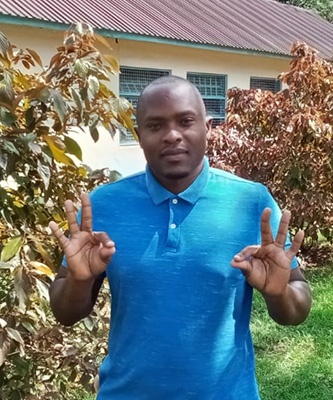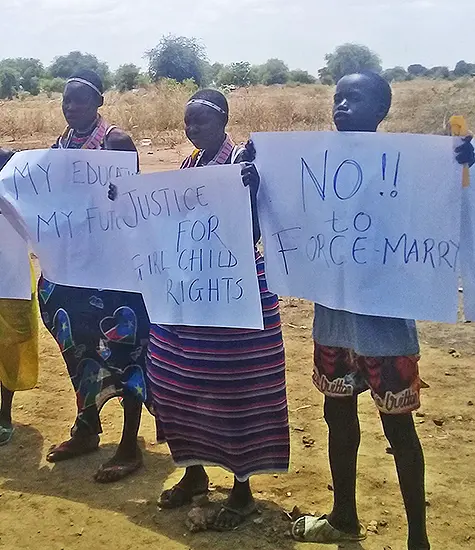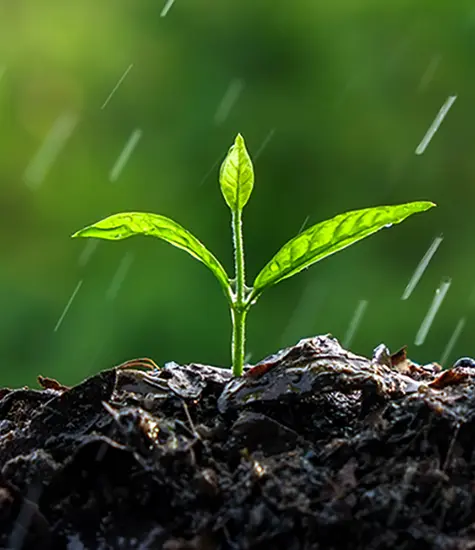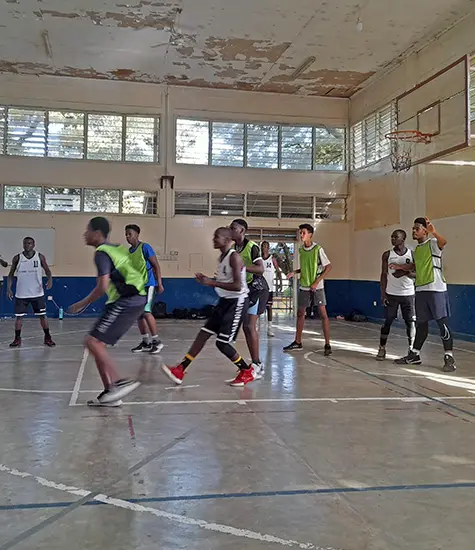Lent 2023 newsletter
Steve and Loyce Veryser, Tanzania
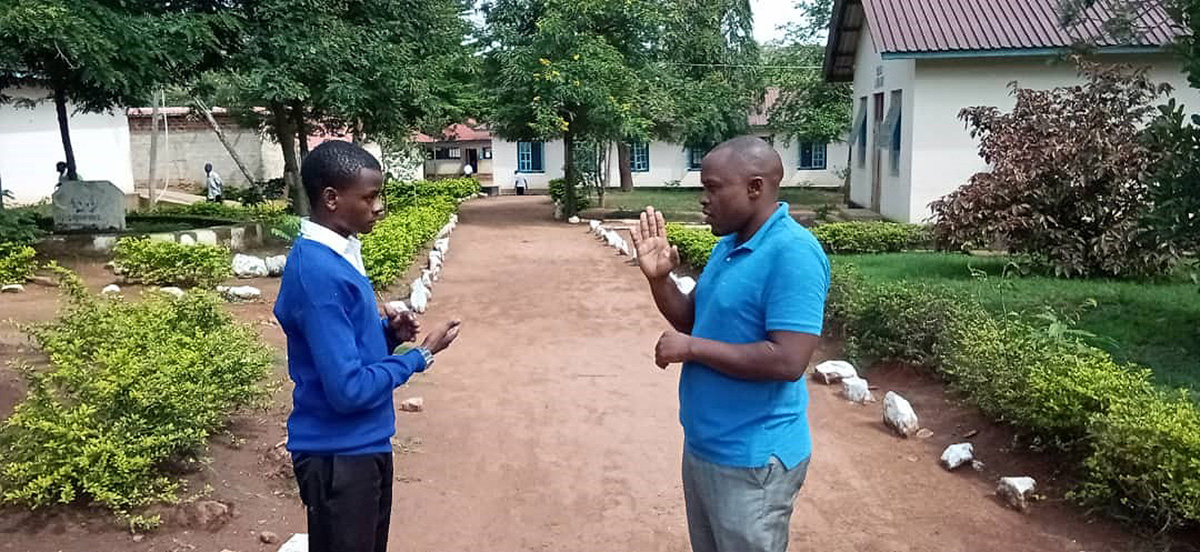
Sam signing with a student at Bwiru Boys Technical Secondary School
Mwalimu Samo, whose sign is shown by touching a u-shaped index finger to the bridge of your nose — representative of a scar from a fall he took as a child — holds the highest level of qualifications in sign language among the teachers at Bwiru Boys; he’s certified as a translator. His full name is Samo Nyabinyiri Elias.
I asked him about deaf education and his experience in the Deaf community:
How did you get interested in pursuing a career in special education?
When I was young, a neighbor of ours in Musoma was deaf. My family, like many families here, had a few goats. This neighbor of ours used to help us tend the goats. We became good friends, like brothers, and I learned simple signs he used to communicate.
After passing secondary school, my older brother suggested studying special education. I found a university in Lushoto that offered the programs. After arriving there, I realized you could specialize in different types of special education and, of course, went for deaf education.
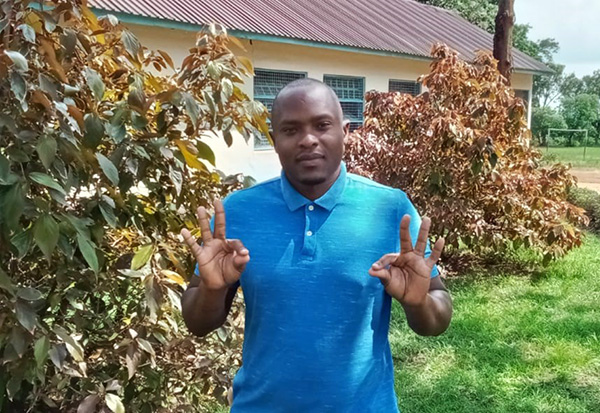
Mwalimu Sam, signing “Nzuri,” in Tanzanian Sign Language, which means “Good”
What do you like about the career?
Being a part of the Deaf community is like entering a whole different world, right in my home country. It’s very rewarding to be part of giving young deaf people the opportunity to get an education and develop careers.
Deafness, as a disability, often isn’t noticed as much as other disabilities because there aren’t outward signs that someone is unable to hear sounds. Many deaf people don’t consider deafness to be a disability, but rather that they simply communicate in a different language (one that’s not spoken). I’ve come to share this perspective. Deaf people share the same hopes and dreams, friendships, stories, challenges, sports, jokes and culture as the rest of us.
What support is available for deaf students in the Tanzania education system?
There are 27 government secondary schools around the country designated to accommodate for students with disabilities, including deaf students. Most of these are boarding schools, so children from a region can come to the school and stay on campus where they’ll be supported by teachers trained in Tanzanian Sign Language (Lugha ya Alama Tanzania, or LAT) and a community of other deaf students.
Many deaf students haven’t been connected with other deaf people or signers before coming to a designated school, so they haven’t had the opportunity to learn sign language. The first thing they do when joining the school is to learn sign language.
Other students will assign them a sign for their name. There is some formal instruction in LAT, but much of the learning will happen through immersion — seeing their peers use signs and learning them from each other. It’s a little known fact that students with disabilities are to be accepted to these designated schools even if they weren’t successful in passing the final primary school exams.
What are some of the challenges in being a sign language translator?
In Tanzania, sign language initially developed independently in different areas of the country, and we had about six different dialects of signs. As the government and the Tanzania National Association of Deaf worked to develop a consistent set of signs, we started to work together more across regions.
The Deaf community is really a small world, and most of us signers and deaf people seem to know each other. There are a couple of collections of signs, dictionaries, which are posted online as short video clips. I try to keep up with new signs through these sites but primarily through constant interaction with deaf friends around the country. Like Swahili, or any other language, new signs are always developing, especially slang.
Please consider joining our circle of COMPANIONS IN MISSION. Companions in Mission are generous donors. like you, who give financial gifts on a regular (usually monthly) basis. For more information visit Become a Companion in Mission. Thank you so much for your generosity!

